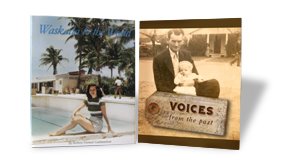"Selling" is still the "S - Word" for too many Legacy Consultants. Images of used car salesmen and "pushy" network marketers help us define who we do not want to be.
I suggest that if the word "Selling" has too much baggage for you, it is time to consider the word "sorting" instead. Think about it. You already know and believe that life story preservation is important and vital for families, individuals and communities. You would not be a Legacy Consultant otherwise.
So if you value our message (that life story preservation is important and urgent) and our product (the Life Story package that makes life story preservation easy and affordable), it stands to reason that others will too. After all, you are not the only person to love and respect your parents or grandparents.
Your task therefore is to "sort through" people to find those for whom our message and product resonate and make sense. You can not "cram" this idea down an unwilling throat. So don't waste your time psyching yourself out that you will somehow unethically "fool" or "push" someone into buying a Life Story Package. It has not yet been done. Besides, there are far too many strong prospects out there to worry about those for whom this is not a fit.
By displaying your passion for the mission and product, you will attract those who want to learn more. You will be solving problems and giving a gift. Is this selling? Well, I don't really care what you call it. It is "sorting" for sure. A lot of people NEED Priceless Legacy and the message of life story and lesson preservation. You are in a position to sort through the hundreds and thousands of people in your circles to find those you can help. Don't let an obsession over terminology stand in your way.

